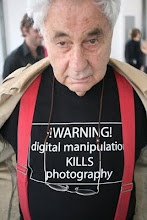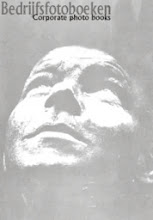Published on 14 November 2016
Libyan Sugar wins Paris Photo First PhotoBook Award
Written by Tom Seymour
LIBYA. MISRATA. April 20, 2011. 16:38:05. Photographer Michael Christopher Brown at Hikma hospital after being hit by the mortar.
Main image: Mistrata, Libya, April 20, 2011. Photographer Michael Christopher Brown at Hikma hospital after being hit by the mortar. All images from the series Libyan Sugar © Michael Christopher Brown, courtesy Magnum
Centered around the 2011 Libyan Revolution, Libyan Sugar is a road trip through a war zone, detailed through photographs, journal entries, and written communication with family and colleagues. Michael Christopher Brown's series is the winner of $10,000 in the First PhotoBook category in the prestigious Paris Photo–Aperture Foundation PhotoBook Awards.
A final jury at Paris Photo selected this year’s winners: Paul Graham (Photographer), Jens Hoffmann (Director of Special Exhibitions and Public Programs, Jewish Museum, New York), Agnès Sire (Director, Fondation Henri Cartier-Bresson), Katja Stuke (Artist and Designer, BöhmKobayashi, Düsseldorf), and Thomas Zander (Gallerist).
Thomas Zander said of the First PhotoBook winner: “An impressive book—you feel as though you are in the war with the photographer.”
Katja Stuke said: “Libyan Sugar offers a strong combination of the personal and the documentary.”
A record of Michael Christopher Brown’s life both inside and outside Libya during that year, this new photobook details is about a young man going to war for the first time and his experience of that age-old desire to get as close as possible to a conflict in order to discover something about war and something about himself, perhaps a certain definition of life and death.
LIBYA. BENGHAZI. March 20, 2011. At a morgue, he was killed during fighting in Benghazi.
Brown, who is represented by Magnum Photos, worked as a freelance photojournalist for seven years prior to photographing in Libya.
When he learned about developments in Libya, he felt a strong attraction to know more about a country that was, until that point, largely closed to the world.
In Libya he was injured twice and lost colleagues, including the celebrated photojournalist Tim Hetherington, while they tried to photograph the violence. The experience “caused him to search for meaning and the relationship between Libya and his home in the United States.”
LIBYA. TRIPOLI. August 28, 2011. 12:56:48. Remains of a body, at Abu Salim Hospital.
The book reveals the physical and emotional toll on the storyteller and their loved ones. As a follow up to the work, Brown is working on a mixed media installation incorporating video, images, sound, and artifacts which will complete the project.
Raised in the Skagit Valley, a farming community in Washington State. His career has included series on the electronica music and youth scene in Havana, Cuba, the ongoing conflict in the Democratic Republic of the Congo, and a series of works from road and train trips across the plains of China.
A contributing photographer at publications such as the National Geographic Magazine and The New York Times Magazine, he was subject of the 2012 HBO documentary Witness: Libya.
LIBYA. BENGHAZI. March 1, 2011. Learning antiaircraft weaponry at a captured government army base.
His photographs have been exhibited at the Massachusetts Institute of Technology, the Instituto Cervantes (New York), The Museum of Fine Arts (Houston), the Annenberg Space for Photography (Los Angeles) and the Brooklyn Museum.
Libyan Sugar is published by Twin Palms. See more of Brown’s work here.
Gruwelijk en gortdroog
Rosan Hollak
2 januari 2017
Wat was eigenlijk het beste fotoboek van 2016? Er is één werk dat eruit springt. Libyan Sugar van Magnum-fotograaf Michael Christopher Brown, dat vorig jaar zomer verscheen, toont de gruwelen van de opstand in Libië. Brown, die in 2011 vertrok naar het oorlogsgebied, maakte een roadtrip door het land en legde met zijn iPhone de gevolgen van de hevige strijd vast. Zijn keiharde, maar ook esthetische beelden, wisselt hij af met emails en sms’jes die hij tijdens die periode ontving van familie en vrienden. Vooral zijn ouders zijn betrokken bij iedere stap die hij onderneemt. Liefdevolle teksten die worden afgewisseld met gruwelijke afbeeldingen van bijvoorbeeld een gids die, geraakt door een raket, nog maar een half hoofd heeft. Het gortdroge commentaar dat Christopher Brown op deze gebeurtenis levert in een skypegesprek met een vriend - „de man zat gisteren nog te lang op de wc” – bewijst wel hoe noodzakelijk humor is in zo’n onwerkelijke wereld. Libyan Sugar geeft een goed beeld van een jonge fotograaf die, gedreven door de adrenalinekick, een keiharde reportage aflevert van een hopeloze strijd.
Rosan Hollak
Michael Christopher Brown, Libyan Sugar.
Twin Palms, 412 blz.



















Geen opmerkingen:
Een reactie posten